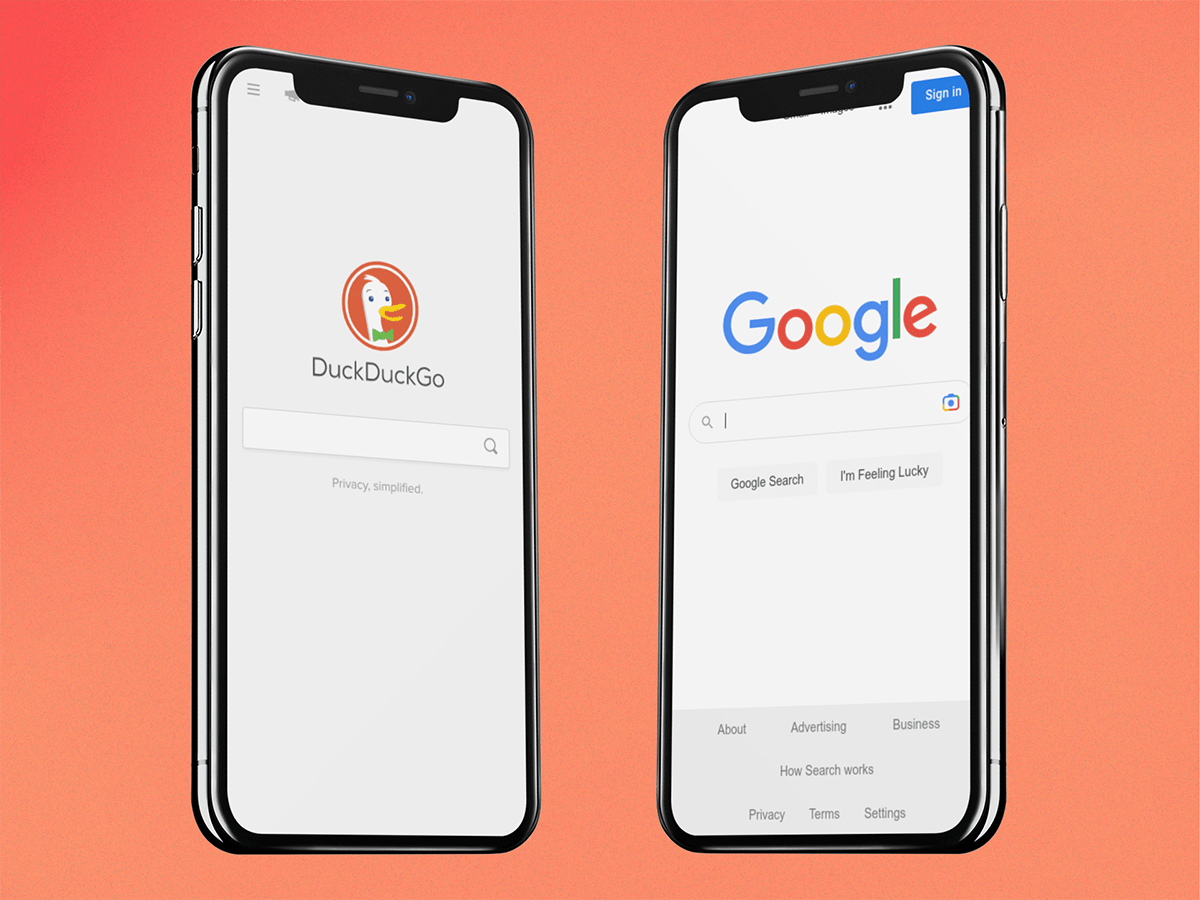When it comes to searching the web, two powerful names come to mind: Google and DuckDuckGo. Both are reputable search engines that have become popular amongst internet users. But which search engine is the best choice?
In this comprehensive comparison of DuckDuckGo vs Google, we’ll compare each search engine’s pros and cons to determine which search engine reigns supreme. We’ll cover the main features that impact a user’s experience and how their search is executed. We’ll then identify the differences between these two search giants in terms of privacy, performance, and reliability. Finally, we’ll conclude by summarizing our findings and drawing a conclusion about which search engine is best for you.
By the end of this article, you should have a clear understanding of the strengths and weaknesses of both search engines, and which one is the better option for satisfying your web needs. Let’s jump in and start comparing DuckDuckGo vs Google.
History and Background of DuckDuckGo and Google
DuckDuckGo is the most successful privacy-focused search engine on the market, founded by entrepreneur and coder Gabriel Weinberg in 2008. Weinberg created the search engine out of his own frustrations with other, then-popular search engines like Google, which had a tendency to track user data to deliver personalized results, ads, and services. As he began to notice more people’s concerns about data privacy, he saw an opportunity for DuckDuckGo to become an alternative search engine, providing users with private, secure, and unbiased search results.
Since its launch, DuckDuckGo has quickly gained in popularity, with users who prefer its privacy-based policies and commitment to unbiased search results. DuckDuckGo offers many of the same features as Google, such as web page previews and safe search, but crucially, it does not store any user information or track user behavior to improve search results.

DuckDuckGo vs Google: Privacy and Security Compared
When it comes to user privacy and security, both DuckDuckGo and Google offer a high level of protection and encryption. However, their approaches to protecting user data differ greatly.
When using Google, user data is captured and stored on remote servers, where it is subject to the company’s user agreement and policies. While Google does take steps to ensure that user data is secure, this data can be collected and analyzed for a variety of purposes, from personalizing ads to creating marketing profiles.
DuckDuckGo, on the other hand, takes a more anonymous approach to user data. Unlike Google, DuckDuckGo doesn’t store user data or track user profiles. This means that they cannot tailor search results to individual users or show targeted ads.
In addition to protecting user data, both search engines provide encryption options to ensure a secure connection between the user and the search engine. Google uses SSL, while DuckDuckGo uses a combination of SSL, Tor, and HTTPS. SSL (Secure Sockets Layer) is a protocol that provides an encrypted channel of communication. Tor (The Onion Router) is a network of computers that encrypts data before it is sent across the internet, making it difficult to trace the user’s IP address. HTTPS (Hypertext Transfer Protocol Secure) is a protocol that adds an extra layer of encryption to web traffic.
Overall, both DuckDuckGo and Google provide a secure environment for users to search the web. However, DuckDuckGo’s more anonymous approach gives users greater privacy and security, and makes it less likely that their data will be tracked and used for other purposes.
DuckDuckGo vs Google: Features and Capabilities Compared
Search competition has been heating up between DuckDuckGo and Google in recent years, with each platform boasting unique features and capabilities that differentiate them from each other. To better understand which search engine wins the race when it comes to features and capabilities, let’s take a closer look at exactly what each has to offer.
DuckDuckGo has made a name for itself as a privacy-focused search engine, offering search engine users a safe haven from tracking and advertising. DuckDuckGo allows users to remain anonymous in their web searches through its private search feature, which gives users access to search results without any personal data being stored.
The platform also allows users to fine-tune the details of their search results, such as the language of the results and the region they come from. These settings can be configured by changing the “region” option in the search bar. DuckDuckGo also offers a “Bang” feature which allows users to quickly jump to specific websites.
Google has long been known for its comprehensive search capabilities. On top of its core search features, Google also offers features like real-time search, flight and hotel booking, maps, image search, and more. Google has also made significant investments in machine learning and artificial intelligence, which has enabled the platform to provide more personalized search results for users. For instance, if a user performs a search for a particular product, Google will often display ads for related products on the results page.
DuckDuckGo and Google are both making strides in the realm of search technology. They are providing users with excellent search results and a plethora of features. In the end, it is up to the user to decide which one to use.

DuckDuckGo vs Google: Performance Compared
When it comes to performance, DuckDuckGo and Google both guarantee a smooth and efficient search experience. However, there are differences in how each of these search engines calculate and display search results. Google uses a complex algorithm to determine what websites and pages are the most relevant to a query, while also considering the popularity of a website or page, as well as its content’s relevance. On the other hand, DuckDuckGo use an open source indexing system and focuses more on the relevance of the search results rather than how many other people have accessed the same web page.
Google’s algorithm is constantly changing and updating to provide faster, more accurate search results; however, this can occasionally lead to lower levels of accuracy in their results. DuckDuckGo offers a more consistent experience when it comes to search results; rather than using a constantly-evolving algorithm, the search engine results are updated every few weeks. Furthermore, DuckDuckGo allows users to filter and organize search results, which can help them access the answers they are looking for more quickly and with greater accuracy.
However, when it comes to finding specific webpages or pieces of information, both DuckDuckGo and Google have similar success rates. DuckDuckGo and Google both excel at finding current, up-to-date information, although Google may be better suited for more specific requests. Additionally, both search engines have improved their auto-complete and predictive search options over the years, allowing users to quickly find what they are looking for without having to type out a full query.
For those looking to compare the two services in terms of privacy, the two search engines vary drastically. Google stores users’ information, including search queries, to power their personalized experience, while DuckDuckGo is completely anonymous. DuckDuckGo encrypts its user’s activity, meaning that websites and advertisers cannot see any of the user’s activity unless the user explicitly gives them permission. This makes DuckDuckGo a great choice for those looking for a high level of privacy when searching the web. Additionally, DuckDuckGo does not have any kind of intrusive advertisements on their website, unlike Google. This makes DuckDuckGo ideal for people who value their privacy and don’t want their search results to be filled with ads.
In terms of features, both DuckDuckGo and Google offer a number of tools and options to tailor each search. Google offers options such as their Knowledge Graph, which provides additional information about the topics you are searching for. Google also offers a variety of other tools, such as their translate feature, which allows users to quickly and easily translate a text or web page into another language. DuckDuckGo offers similar features, such as their instant answer feature, which allows users to quickly get answers to simple questions without having to click through links. They also offer a variety of other tools, such as their bang search feature, which allows users to quickly and easily search their favorite websites.
To sum up, it is ultimately up to each individual to decide which search engine they prefer to use. DuckDuckGo is a great option for those who put a priority on privacy, while Google offers specific information and a range of features. However, both search engines can provide helpful results.
Advantages and Disadvantages of DuckDuckGo vs Google
When comparing DuckDuckGo to Google, it is important to consider both the advantages and disadvantages that each search engine offers. Although DuckDuckGo is quickly growing in popularity, Google still remains the go-to choice for most people.
The primary advantage of DuckDuckGo is its commitment to privacy. It does not track any personal data and is based on serving relevant search results. This makes it attractive to those who are concerned about their online data and want more control over the content they see. DuckDuckGo also has a simple user interface with autocomplete features and a minimalistic design that is easy to navigate.
On the other hand, Google has many advantages to its users. Perhaps the greatest benefit of using Google is its vast array of features including email, cloud services, shopping, maps, and more. Additionally, its search engine algorithm is extremely advanced and often produces very relevant results based on user search history.
In conclusion, when deciding between DuckDuckGo and Google, it is important to consider the advantages and disadvantages of each. DuckDuckGo offers more privacy and a simpler user interface, while Google provides a wider range of features and better search engine results. Ultimately, it is up to the user to decide which search engine to use.
Summary and Recommendation
After comparing every aspect of DuckDuckGo vs Google, it’s clear that both search engines offer unique advantages and disadvantages. When it comes to reliability, speed, and ease-of-use, Google is the clear winner, as its results are more comprehensive and accurate. On the other hand, DuckDuckGo offers an excellent level of privacy and customization.
In the end, the decision of which search engine is better for any individual comes down to personal preference. Those who value speed and accuracy should opt for Google, while those who are concerned about their privacy should use DuckDuckGo. It is also important to remember that no one engine will be able to provide the same level of search results for all topics. Therefore, it is recommended that users make use of both DuckDuckGo and Google for different types of searches.





